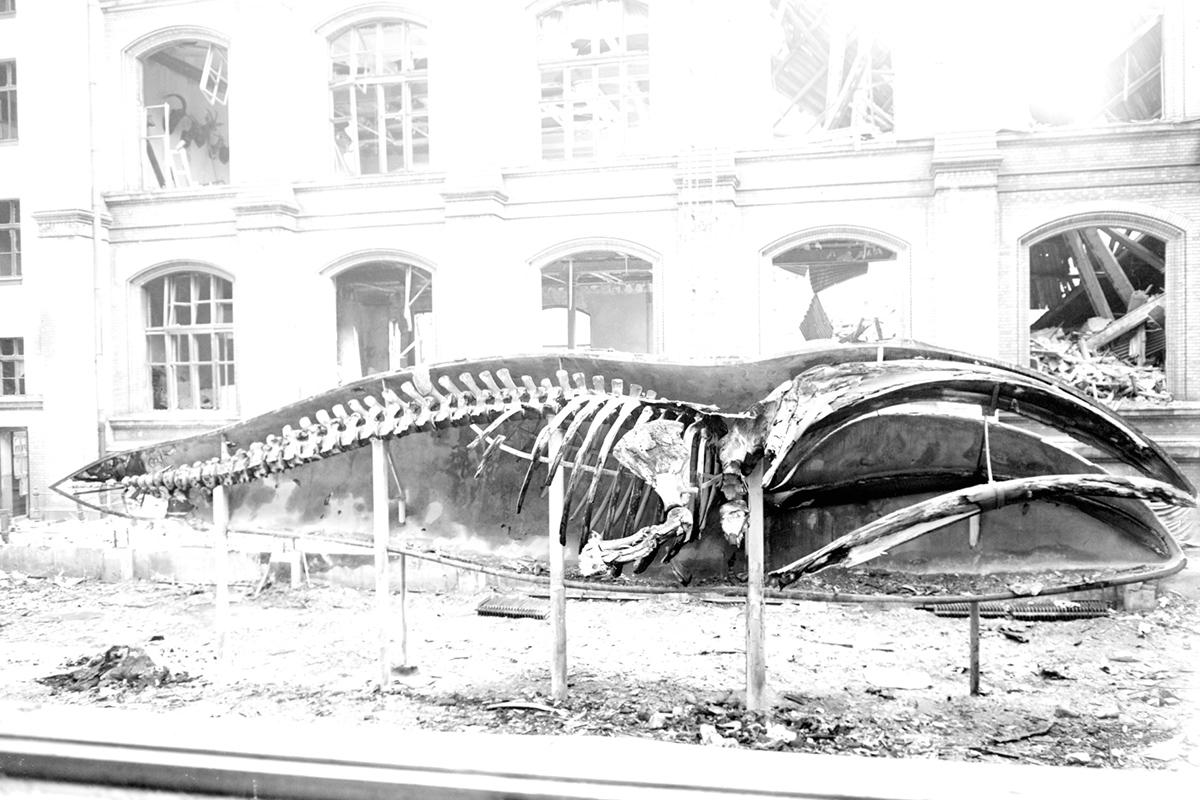The Center for Humanities of Nature brings together scholars and practitioners from the history of science, science and technology studies, the sociology of science and sustainability, cultural studies, museum studies and the arts. They focus on the politics, histories and cultures of nature through original research and public engagements in the field of knowledge transfer. Their objective is to support critical self-reflection within natural history museums and biodiversity sciences, to develop theoretical and practical tools for examining the relations between nature, culture and politics, and to advance novel collaborative knowledge practices.
The research associates lead and engage in third-party funded research projects, publish articles and books, organise workshops and conferences, provide expert knowledge, curate exhibitions and participate in many national and international networks and associations.
Current thematic focal points encompass the colonial provenance of natural history collection and collecting; as well as the history of collections, exhibitions and museums.
The Center for Humanities of Nature organises a regular colloquium. From 21st November 2024 onwards we focus on Heritage and Justice: Unpacking Legal Narratives in Natural History.
Natural history collections come into existence through a myriad of avenues – colonial extraction, war time plundering, and donations from naturalists and game hunters to name just a few. The legal and ethical justifications for each avenue provide unique insight into how “nature” was turned into a collectable natural history object. What bureaucracies and paper trails exist to establish and protect museum collections? How do modern digital technologies perpetuate or transform concepts of heritage, ownership and access? Are taxidermies, fossils or herbarium specimens legally defined as cultural artifacts and what consequences do these definitions have for indigenous sovereignty and restitution?
The lecture series “Heritage and Justice: Unpacking Legal Narratives in Natural History” brings together international scholars with diverse perspectives across legal, ethical, and professional frameworks. It aims to open up a research field and map the complexities that lie at the intersection of law, ethics, politics, sovereignty, and natural history collections.
Heritage and Justice: Unpacking Legal Narratives in Natural History
Wednesdays, 1-2 pm CET, online.
- 15.10.2025
Legal Restitution Narratives in the 21st Century
Sebastian Spitra (Universität Münster) - 22.10.2025
Fossils and Sovereignty: Sino-American Fossil Dispute in the 1920s
Hsiao-pei Yen (National Yang Ming Chiao Tung) - 05.11.2025
Between Stones and Stories: The Nature/Culture Divide in Geological and Paleontological Heritage
Jéssica Tarine Moitinho de Lima (Federal University of Pará) - 12.11.2025
Unethical yet Legal? Reflexions on the Doctrine of Intertemporality in International Law
Rémi Fuhrmann (University of Glasgow) & Melissa Schweizer - 26.11.2025
Access to Scientific Collections for Education, So Close, Yet So Far
Caiubi Emanuel Souza Kuhn (Universidade Federal de Mato Grosso) - 03.12.2025
Law and the Appropriation of Nature: Colonial and Postcolonial Orders of Nature
Sigrid Boysen (Helmut-Schmidt-Universität) - 10.12.2025
Nature & Culture as Heritage: Lessons from the UNESCO World Heritage Convention and Museum Practice
Anaïs Mattez (Harvard University) - 17.12.2025
Nature in the Anthropocene: Between Person and Capital?
Julia Dehm (La Trobe University Australia)
Please register here or at humanities[at]mfn.berlin
HoN Colloquium 2025 Heritage and Justice.pdf
***
You can find previous programmes here:
Colloquium Programme, 2021-2024.pdf
If you would like to sign up for our Newsletter click here. Your data will be used exclusively for this newsletter (via Mailchimp) and will not be passed on to third parties. Unlisting is possible at any time.
Current research and cooperation projects
- Research and Responsibility. Virtual access to fossil and archival material from the German Tendaguru Expedition (1909-1913) (since 2023)
- Guidelines on Dealing with Natural History Collections from Colonial Contexts (since 5/2020)
- Provenance research under the spotlight
Completed research and cooperation projects
- Rocky Pasts? (10/2020 – 12/2024)
- Museums and Society: Mapping the Social (10/2020 – 10/2024)
- Colonial Provenances of Nature (12/2020 – 1/2024)
- Research into the Colonial Provenance of Human Remains at the Museum für Naturkunde (short-duration project 2024)
- User Imaginaries in Digital Natural History (until 2024)
- Civic Digitization (until 2024)
- Bureau for troubles (until 2024)
- A Window on Nature and Art (2018 – 2022)
- Animals as Objects (9/2018 – 12/2021)
- Lecture series: Animals as objects? (WS 2020/2021)
- The Trained Animal (10/2018 – 6/2021)
- Günter Tembrock and the Red Foxes (3/2018 – 4/2021)
- Cliff If Felsen (2019 – 2020)
- Architectural Legacy. The Visual Representation of Natural History (5/2019)
- Art/Nature. Artistic Interventions at the Museum für Naturkunde Berlin (1/2014 – 3/2019)
- Cuban Corals in East-Berlin (5/2015 – 12/2018)
- Dinosaurs in Berlin (4/2015 – 10/2018)
- Berlin's Brachiosaurus as an Object of Knowledge (2015 – 2017)
- New edition 2020: The nature of things (6/2013 – 9/2015)
- Research Cluster: OpenHeritage
- The image collection of Georg August Zenker in the Historical Division
